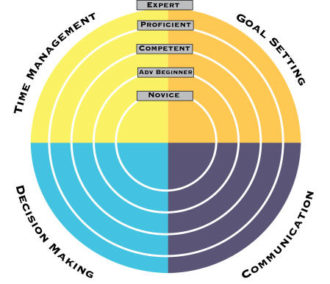Providing farmers with expert advice on production and farm management topics is the focus of much of the work conducted by Extension educators, nonprofit staff and other agricultural service providers. But what happens when the conversation with farmers veers beyond soil health, agronomy and animal husbandry to questions around communication, decision-making, goal-setting and time management?
To help agricultural service providers better navigate these topics with their farmer clients, University of Maine Cooperative Extension’s human development specialist Leslie Forstadt focused her Northeast SARE Professional Development Program grant on interpersonal relationship skill-building. To start the project, Leslie and her team conducted farmer focus groups to gain a better understanding of interpersonal needs that farmers have at different stages of their farms’ development.
Over the course of the project, 53 providers received training. Each training covered aspects of farmer typology (from novice to expert), built provider’s skills to act as “guides” or active listeners, and practiced skill-building related to communication, decision-making, goal-setting and time management. About half of the participants reported that they used the tools developed by the project in one-on-one consultations with more than 87 farmers.
As a result of the project, one participant said, “The active and effective listening exercises in the training were critical in helping me hone my interpersonal communications methods. As a service provider I am now much more aware of how my listening/ feedback is interpreted by our customers.” Another said, “Having the broader first-hand information of what farmers reported they need and/or how they see what makes a farmer/farm successful has made me a better practitioner… And, having knowledge about the development cycles and learning stages has been huge in increasing my depth of knowledge and reminding me that 'not all beginning farmers' are the same.”
